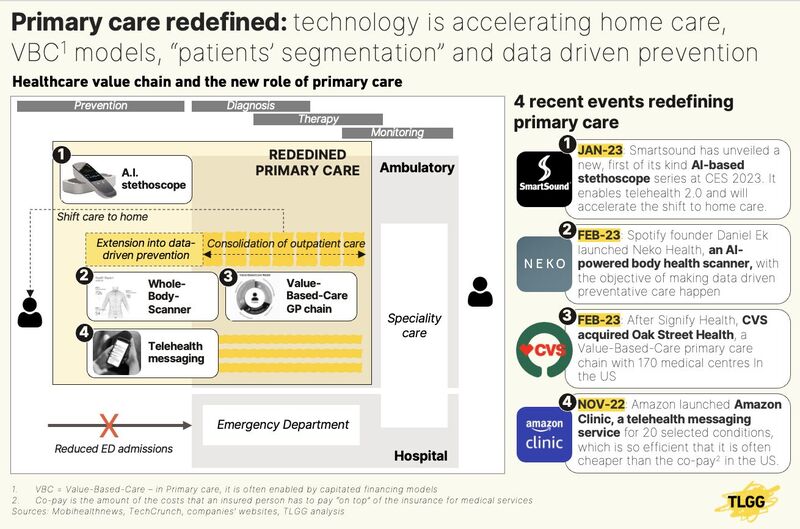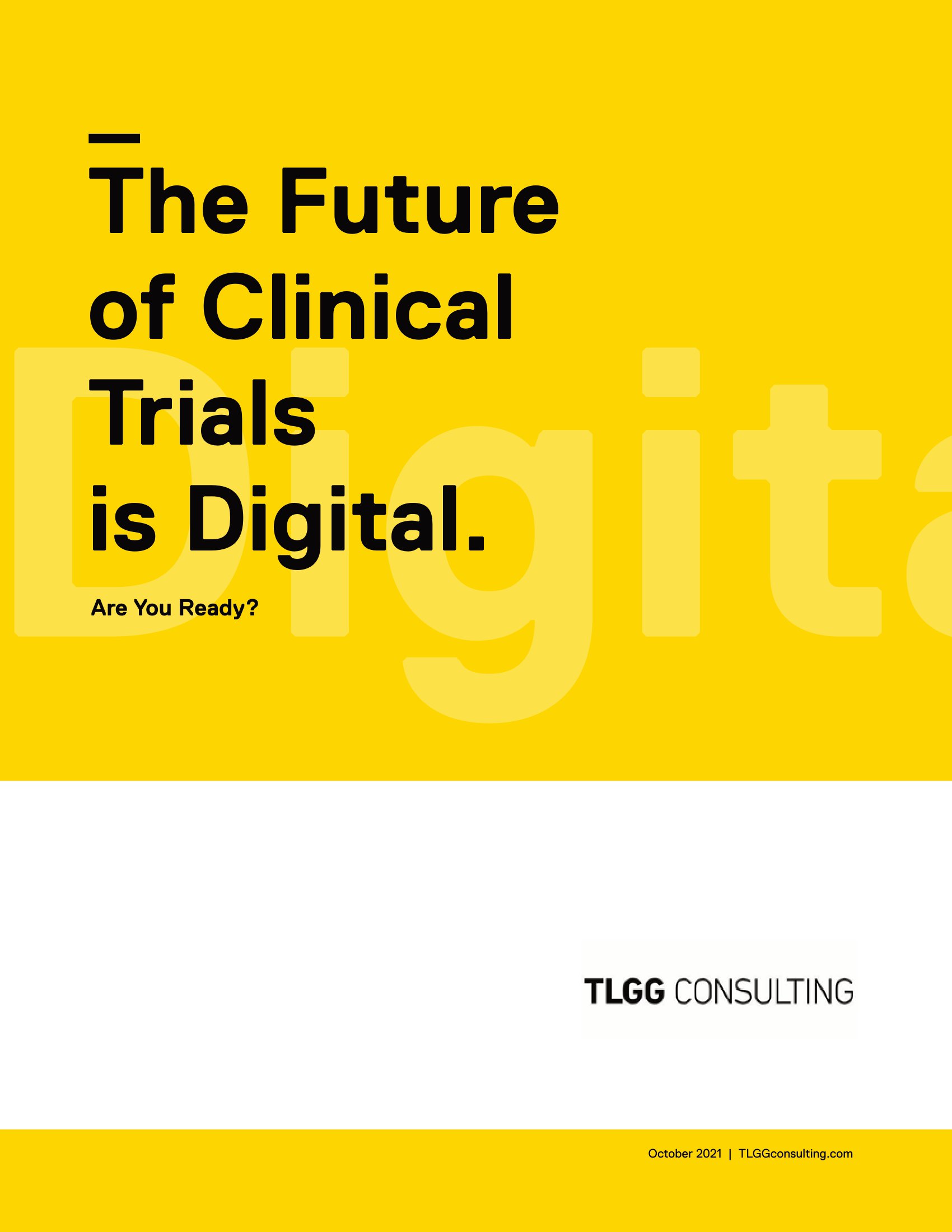➡️ Spotify founder Daniel Ek just launched Neko Health, an AI-powered body health scanner.
➡️ Smartsound Corporation has unveiled a new, first of its kind AI-based stethoscope series
at CES 2023.
➡️ After Signify Health, CVS Health acquired Oak Street Health , a Value-Based-Care primary
care chain in the US.
➡️ And Amazon is segmenting primary care with the recent launch of Amazon Clinic, a
telehealth messaging service for 20 selected conditions.
Why is there so much investment in Primary Care?
1) Catching people at the beginning of the care journey as a strategic advantageThe objective is to become the digital front door and “capture” most of the volume “upstream”, strengthening the position in the value chain. As a consequence, those companies can compete in what
Rock Health names “the growing cluster of retail-orchestrated specialty providers”.
2) Consolidating a fragmented primary care marketIn the US, there are more than 500 000 outpatient practices, making the market very fragmented. Players like Amazon, CVS Pharmacy, Walgreens or Walmart with their retail clinics / primary care chains, are consolidating the market, allowing innovation to scale.
3) Making VBC a reality in primary careSuccessful implementation of VBC in primary care is possible, the tech-enabled GP chain ChenMed has shown. CVS Health CEO, Karen S. Lynch, also confirmed her VBC ambition:
“Combining Oak Street Health’s platform with CVS Health’s unmatched reach will create the premiere value-based primary care solution.”
4) Paving the way towards data-driven preventionThe future user/patient holistic view (phenotype, genotype, social, lifestyle, …), combined with a new digital care pathway, will enable to intercept diseases before they occur. Primary care is today best positioned in the value chain to develop these new data driven prevention approaches.
5) The (almost) end game: The Super GP
We are currently in a dead-end: healthcare is too costly, physicians are suffering from burn-out but healthcare is becoming increasingly more complex (new datasets like genomics, novel therapies, …). This leads to a hyper-specialization of physicians, triggering additional inefficiencies in the system that one cannot afford. A.I. should enable GPs to have access to specialist knowledge and make “medical specialist decisions”.
This would lead to the rise of a “super GP”.






